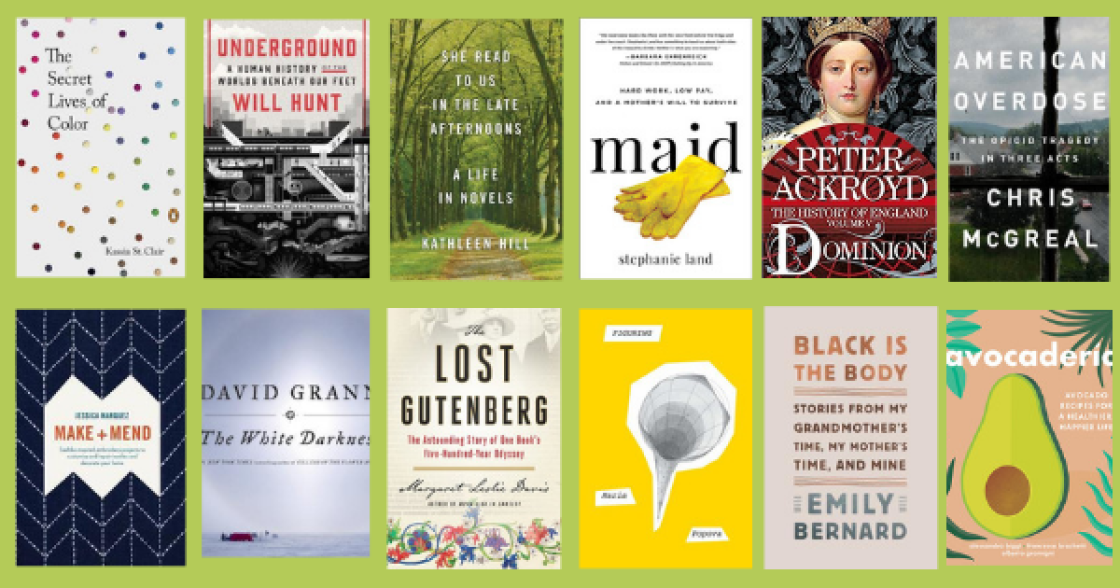
Here's the latest list of our new nonfiction book picks! Listed below, along with their Dewey Decimal classification, are the nonfiction books that looked most interesting, ultra-informative, or just plain fun to our Technical Services Department (Gwen, Emily, Joyce, and Lisa). This department gets all new library materials ready for you to check out.
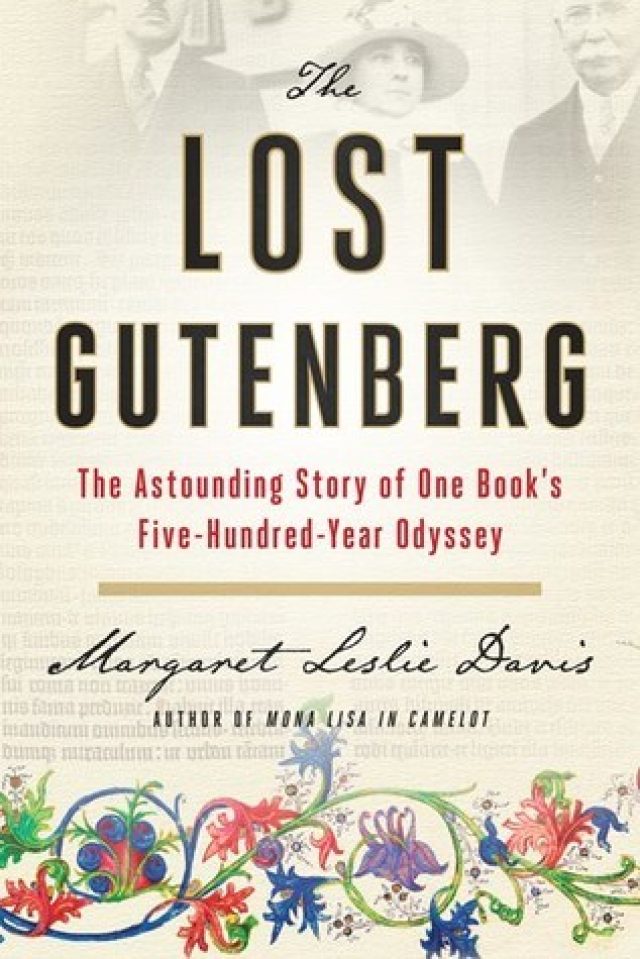
The Lost Gutenberg
by Margaret Leslie Davis
093 DAV
The never-before-told story of one extremely rare copy of the Gutenberg Bible, and its impact on the lives of the fanatical few who were lucky enough to own it.
For rare-book collectors, an original copy of the Gutenberg Bible—of which there are fewer than 50 in existence—represents the ultimate prize. Here, Margaret Leslie Davis recounts five centuries in the life of one copy, from its creation by Johannes Gutenberg, through the hands of monks, an earl, the Worcestershire sauce king, and a nuclear physicist to its ultimate resting place, in a steel vault in Tokyo. Estelle Doheny, the first woman collector to add the book to her library and its last private owner, tipped the Bible onto a trajectory that forever changed our understanding of the first mechanically printed book.
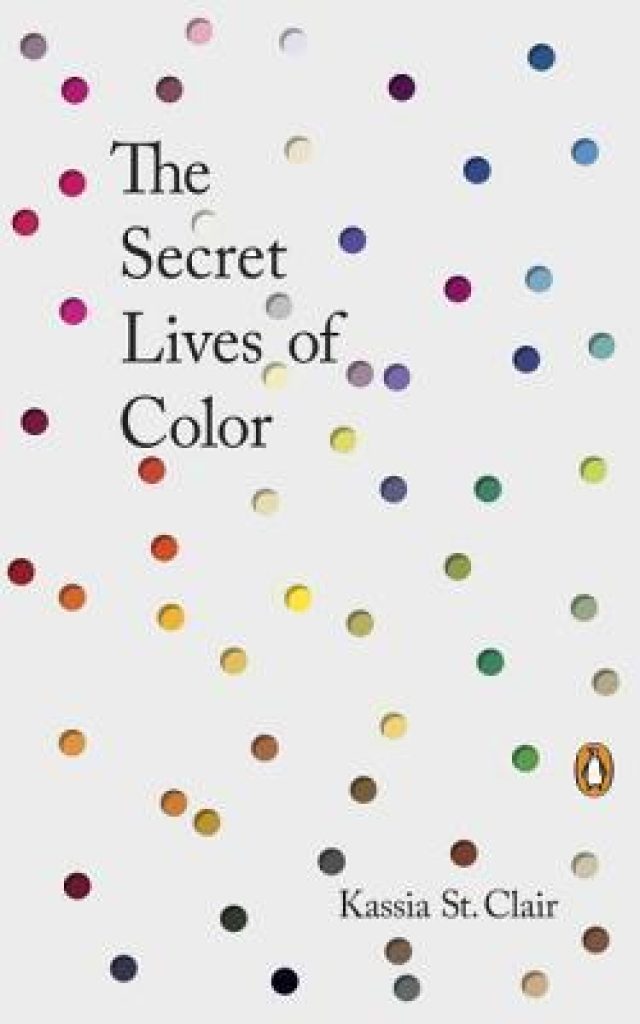
The Secret Lives of Color
by Kassia St. Clair
155.91145 STC
The Secret Lives of Color tells the unusual stories of seventy-five fascinating shades, dyes and hues. From blonde to ginger, the brown that changed the way battles were fought to the white that protected against the plague, Picasso's blue period to the charcoal on the cave walls at Lascaux, acid yellow to kelly green, and from scarlet women to imperial purple, these surprising stories run like a bright thread throughout history.
In this book, Kassia St. Clair has turned her lifelong obsession with colours and where they come from (whether Van Gogh's chrome yellow sunflowers or punk's fluorescent pink) into a unique study of human civilization. Across fashion and politics, art and war, the secret lives of colour tell the vivid story of our culture.
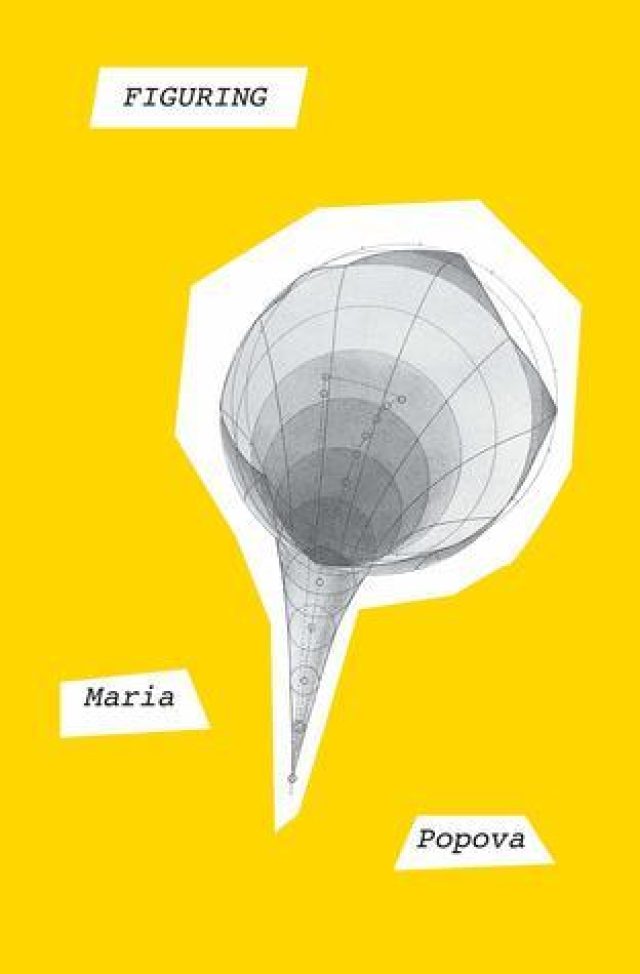
Figuring
by Maria Popova
305.435 POP
Figuring explores the complexities of love and the human search for truth and meaning through the interconnected lives of several historical figures across four centuries--beginning with the astronomer Johannes Kepler, who discovered the laws of planetary motion, and ending with the marine biologist and author Rachel Carson, who catalyzed the environmental movement.
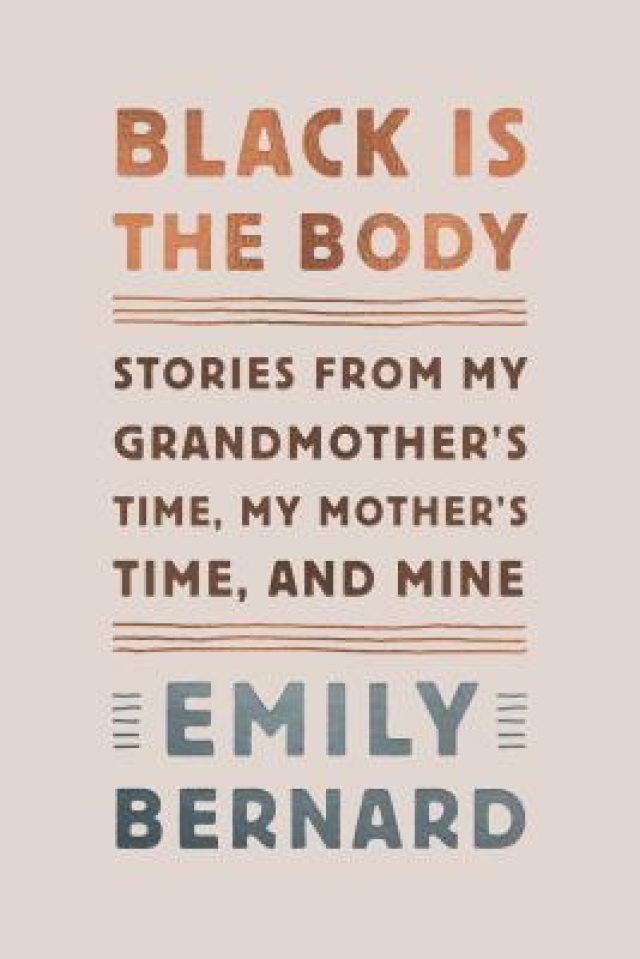
Black is the Body: Stories from my Grandmother's Time, My Mother's time, and Mine
by Emily Bernard
305.48 BER
"I am black--and brown, too," writes Emily Bernard. "Brown is the body I was born into. Black is the body of the stories I tell." And the storytelling, and the mystery of Bernard's storytelling, of getting to the truth, begins with a stabbing in a New England college town. Bernard writes how, when she was a graduate student at Yale, she walked into a coffee shop and, along with six other people, was randomly attacked by a stranger with a knife ("I remember making the decision not to let the oddness of this stranger bother me"). "I was not stabbed because I was black," she writes (the attacker was white), "but I have always viewed the violence I survived as a metaphor for the violent encounter that has generally characterized American race relations. There was no connection between us, yet we were suddenly and irreparably bound by a knife, an attachment that cost us both: him, his freedom; me, my wholeness." Bernard explores how that bizarre act of violence set her free and unleashed the storyteller in her ("The equation of writing and regeneration is fundamental to black American experience").
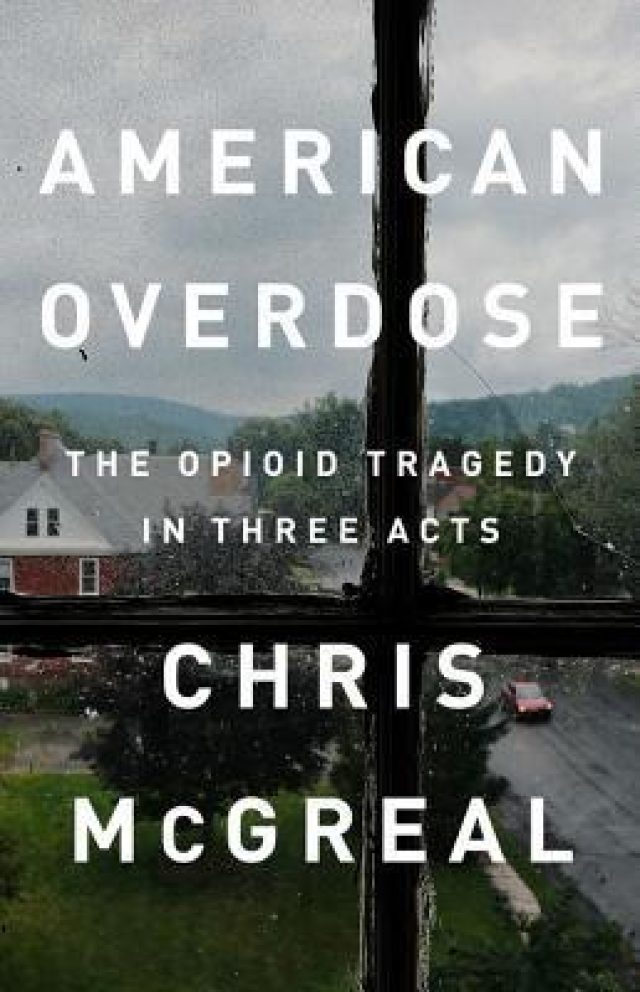
American Overdose: The Opioid Tragedy in Three Acts
by Chris McGreal
362.293 MCG
The opioid epidemic has been described as "one of the greatest mistakes of modern medicine." But calling it a mistake is a generous rewriting of the history of greed, corruption, and indifference that pushed the US into consuming more than 80 percent of the world's opioid painkillers.
Journeying through lives and communities wrecked by the epidemic, Chris McGreal reveals not only how Big Pharma hooked Americans on powerfully addictive drugs, but the corrupting of medicine and public institutions that let the opioid makers get away with it.

Underground: A Human History of the Worlds Beneath Our Feet
by Will Hunt
624.19 HUN
When Will Hunt was sixteen years old, he discovered an abandoned tunnel that ran beneath his house in Providence, Rhode Island. His first tunnel trips inspired a lifelong fascination with exploring underground worlds, from the derelict subway stations and sewers of New York City to sacred caves, catacombs, tombs, bunkers, and ancient underground cities in more than twenty countries around the world. Underground is both a personal exploration of Hunt’s obsession and a panoramic study of how we are all connected to the underground, how caves and other dark hollows have frightened and enchanted us through the ages.

Avocaderia: Avocado Recipes for a Healthier, Happier Life
by Alessandro Biggi
641.64653 BIG
New York City’s buzzy all-avocado bar, Avocaderia, became an overnight success and instant global destination when it opened in early 2017 to a flurry of media attention and lines out the door. Avo-lovers come from all over the city—and the world—to sample the restaurant's healthy and unique eats that are as beautiful as they are tasty. For restaurateurs Alessandro Biggi, Francesco Brachetti, and Alberto Gramigni, the avocado isn't just a superfood packed with nutrients and heart-healthy fat—it's a versatile ingredient that gets people excited about eating well. Now readers can bring the Avocaderia experience home, whether it's to make one of the restaurant's signature dishes, like the Avo Burger, or to try their hand at inventive new offerings, like Avo Tartare.
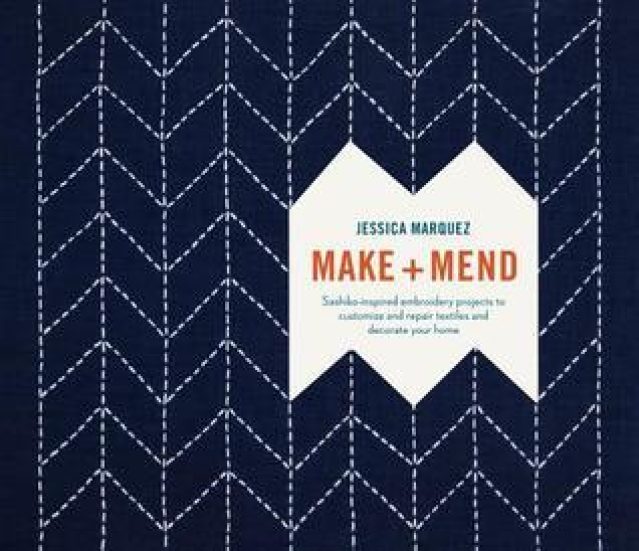
Make and Mend: Sashiko-Inspired Embroidery Projects to Customize and Repair Textiles and Decorate Your Home
by Jessica Marquez
746.44 MAR
Requiring no special equipment other than a sewing needle and thread, Make and Mend introduces the incredibly simple technique of sashiko--a striking hand-sewing method using a running stitch to form pleasing geometric patterns. Sashiko is traditionally used to mend and repair clothing and textiles, but it can just as easily be used to create beautiful, decorative projects for the home. With fifteen projects applying a modern, on-trend aesthetic to this ancient craft, Make and Mend shows readers how to apply sashiko stitching to a variety of craft projects, such as repairing torn jeans, mending a ripped hem, and making decorative pillows, napkins, a tablecloth, and a totebag. Touching on the concepts of beauty in minimalism and resourceful simplicity, as well as a fascination with Japan and Japanese design, this easy and accessible book appeals to both the seasoned maker and total beginner.
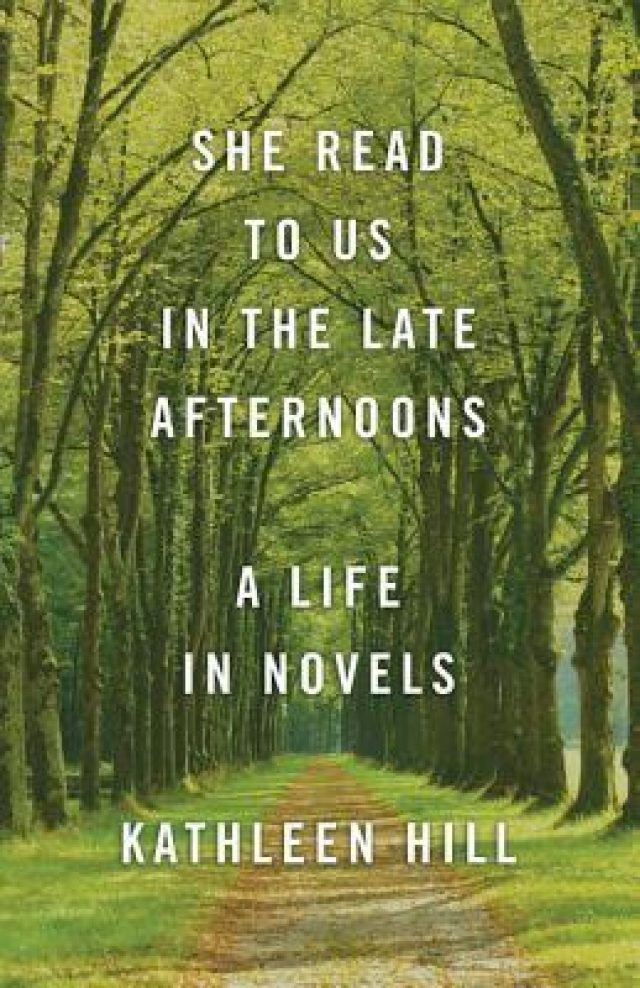
She Read to Us in The Late Afternoons: A Life in Novels
by Kathleen Hill
920 HIL
Beginning with a Best American award-winning narrative, Kathleen Hill’s memoir explores defining moments of a life illuminated by novels, read in Nigeria and France and at home in New York. As a child in a music class where a remarkable teacher watches over a classmate marked for tragedy, the author by chance reads Willa Cather’s novel, Lucy Gayheart, and is prepared against her will for death by drowning. And prepared for the teacher’s confessions to the class of a frustrated ambition to become a pianist, her regret for a life that will never be. Later, recently married and living in a newly independent Nigeria, a teacher now herself, the author gives Achebe’s Things Fall Apart to her students and is instructed by them in the violent legacy of colonialism. And loses her American innocence when she visits a nearby abandoned slave port and connects its rusting shackles with the students sitting before her. Reading A Portrait of a Lady, also in Nigeria, she ponders her own new marriage through the lens of Isabel Archer’s cautionary fate, remembers her own adolescent fear that reading might be a way of avoiding experience. A few years later, this time in a town in northern France, haunted by Madame Bovary, by Emma’s solitude and boredom, she puts aside Flaubert’s novel and discovers in Bernanos’ Diary of a Country Priest the poverty and suffering she had failed to see all around her. The memoir closes with a tender account of the author’s friendship with the writer, Diana Trilling, whose failing sight inspires a plan to read aloud Proust’s masterwork, an undertaking that takes six years to complete. Faced with Diana’s approaching death and the mysteries of her own life, the author wonders whether reading after all may not be experience at its most ardent, its most transforming.
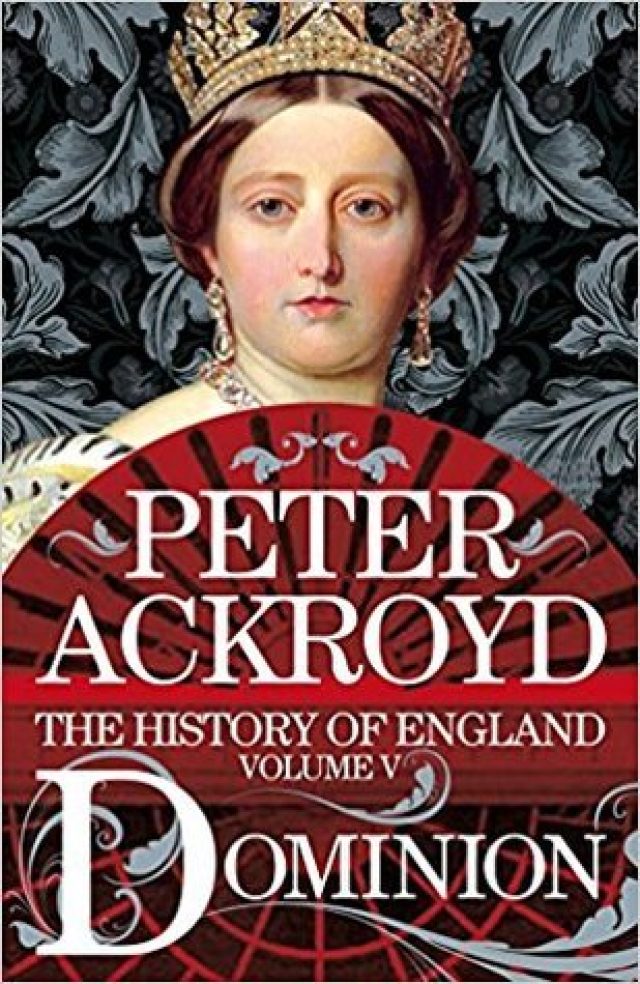
Dominion: The History of England from the Battle of Waterloo to Victoria's Diamond Jubilee
by Peter Ackroyd
942.081 ACK
Dominion, the fifth volume of Peter Ackroyd’s masterful History of England, begins in 1815 as national glory following the Battle of Waterloo gives way to a post-war depression and ends with the death of Queen Victoria in January 1901.
Spanning the end of the Regency, Ackroyd takes readers from the accession of the profligate George IV whose government was steered by Lord Liverpool, whose face was set against reform, to the ‘Sailor King’ William IV whose reign saw the modernisation of the political system and the abolition of slavery.
But it was the accession of Queen Victoria, at only eighteen years old, that sparked an era of enormous innovation. Technological progress―from steam railways to the first telegram―swept the nation and the finest inventions were showcased at the first Great Exhibition in 1851. The emergence of the middle-classes changed the shape of society and scientific advances changed the old pieties of the Church of England, and spread secular ideas among the population. Though intense industrialization brought booming times for the factory owners, the working classes were still subjected to poor housing, long work hours, and dire poverty. Yet by the end of Victoria’s reign, the British Empire dominated much of the globe, and Britannia really did seem to rule the waves.

Maid: Hard Work, Low Pay, and a Mother's Will to Survive
by Stephanie Land
B LAND
Evicted meets Nickel and Dimed in Stephanie Land's memoir about working as a maid, a beautiful and gritty exploration of poverty in America. Includes a foreword by Barbara Ehrenreich.
"My daughter learned to walk in a homeless shelter."
While the gap between upper middle-class Americans and the working poor widens, grueling low-wage domestic and service work--primarily done by women--fuels the economic success of the wealthy. Stephanie Land worked for years as a maid, pulling long hours while struggling as a single mom to keep a roof over her daughter's head. In Maid, she reveals the dark truth of what it takes to survive and thrive in today's inequitable society.
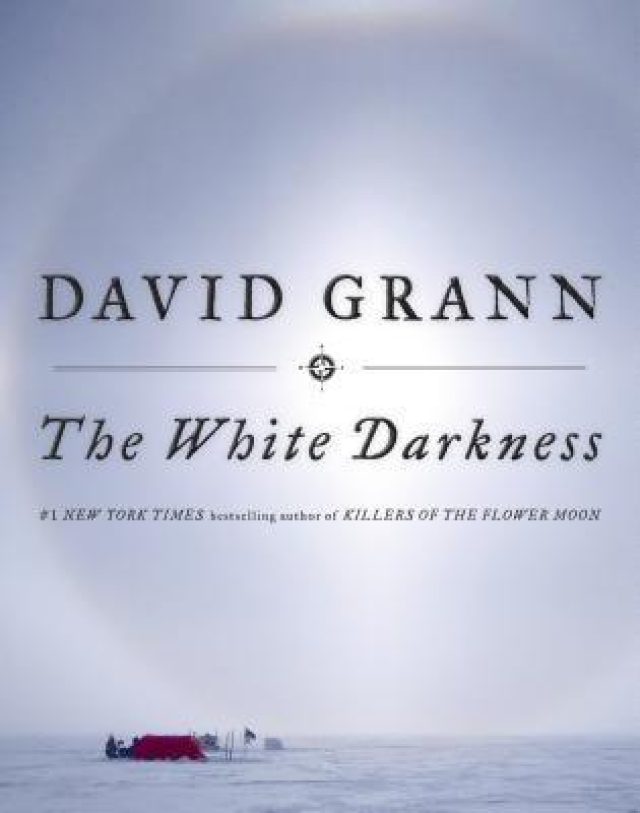
The White Darkness
by David Grann
B WORSLEY
Henry Worsley was a devoted husband and father and a decorated British special forces officer who believed in honor and sacrifice. He was also a man obsessed. He spent his life idolizing Ernest Shackleton, the nineteenth-century polar explorer, who tried to become the first person to reach the South Pole, and later sought to cross Antarctica on foot. Shackleton never completed his journeys, but he repeatedly rescued his men from certain death, and emerged as one of the greatest leaders in history.
Worsley felt an overpowering connection to those expeditions. He was related to one of Shackleton's men, Frank Worsley, and spent a fortune collecting artifacts from their epic treks across the continent. He modeled his military command on Shackleton's legendary skills and was determined to measure his own powers of endurance against them. He would succeed where Shackleton had failed, in the most brutal landscape in the world.
In 2008, Worsley set out across Antarctica with two other descendants of Shackleton's crew, battling the freezing, desolate landscape, life-threatening physical exhaustion, and hidden crevasses. Yet when he returned home he felt compelled to go back. On November 2015, at age 55, Worsley bid farewell to his family and embarked on his most perilous quest: to walk across Antarctica alone.

About the Author
Katherine is the Social Media Coordinator and has been working at EPL since 2008. She loves books, especially ones with unique plots and those written so well that she can't put them down.
